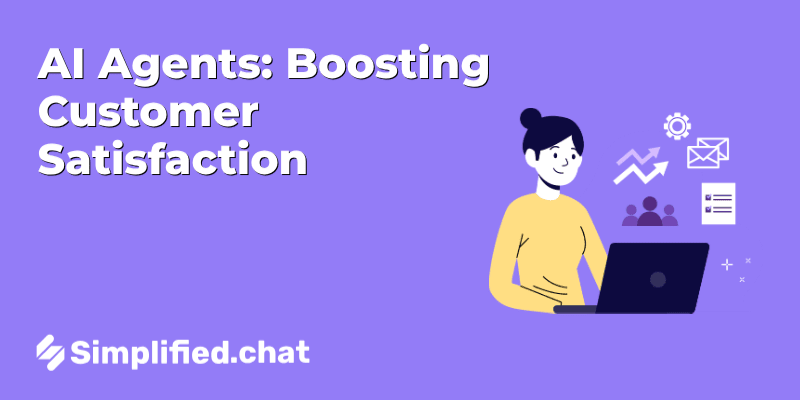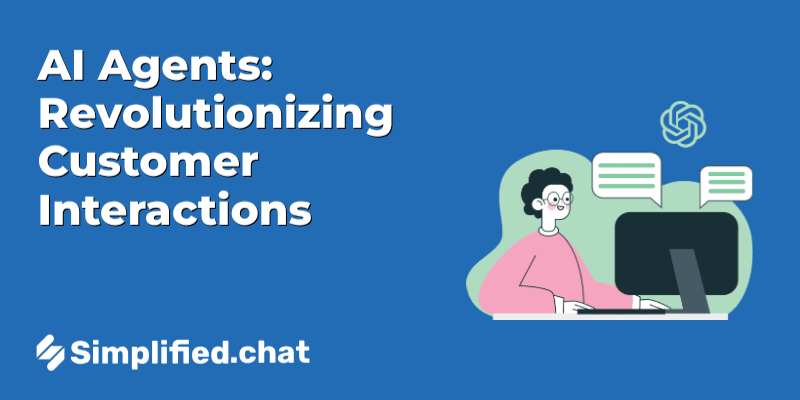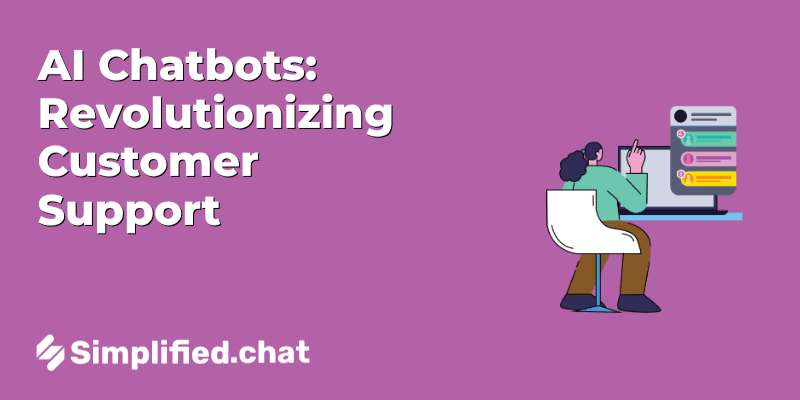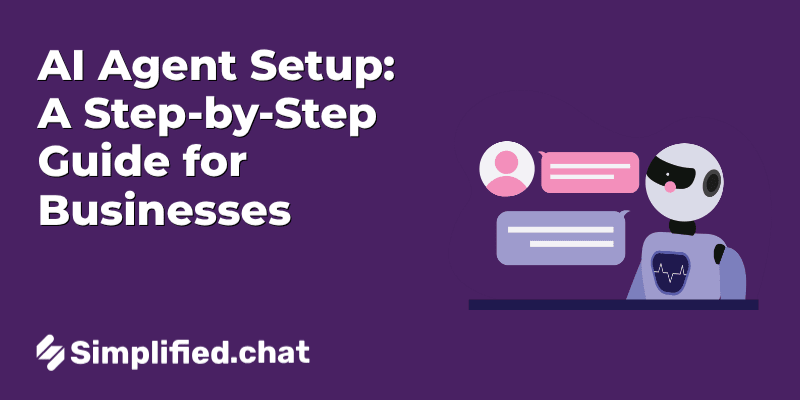Table Of Content
How Do AI Agents Boost Customer Satisfaction?
AI agents use artificial intelligence to automate customer interactions, offering quick, accurate, and personalized support. They can handle a wide range of inquiries, from answering FAQs to resolving complex issues, improving overall customer satisfaction.
According to a McKinsey article, AI-enabled customer service delivers personalized and proactive experiences, effectively addressing common customer pain points. As the article notes, "AI customer service can provide personalized and proactive experiences, addressing common customer pain points effectively," highlighting the agility of AI agents in improving customer satisfaction.
Understanding Customer Support Pain Points

In the realm of customer service, recognizing the common pain points customers face is crucial for improving satisfaction and loyalty. Many of these challenges stem from expectations around speed, relevance, and consistency in support interactions. By understanding these frustrations, businesses can better tailor their solutions to meet real needs.
The Frustration of Long Wait Times
Waiting on hold or for a response often ranks at the top of customer grievances. Extended wait times can increase stress and negatively impact the overall perception of a brand. Studies show that 75% of customers expect to get a quick response when reaching out for help. This urgency makes instant replies not just a convenience but a necessity in modern customer service.
Artificial intelligence (AI) agents can address this issue effectively by providing immediate responses. Unlike traditional support channels that may have limited staff during peak times, AI doesn’t experience downtime or fatigue. Customers receive answers promptly, which reduces frustration and prevents issues from escalating.
Generic Responses: The Desire for Personalized Assistance
Another common complaint involves receiving generic or scripted replies that don’t fully address individual concerns. Customers want interactions that feel tailored to their specific situation rather than one-size-fits-all answers.
AI-powered agents can utilize customer data and previous interactions to personalize conversations. By referencing past purchases, preferences, and troubleshooting history, AI can deliver more relevant solutions. This approach not only saves time but also builds a sense of being understood and valued, which enhances loyalty.
Inconsistent Support Quality
Inconsistency in support quality can significantly degrade the customer experience. Different agents may provide varying levels of expertise or communicate differently, leading to confusion and dissatisfaction.
AI agents maintain uniform standards by following predefined protocols and accessing the same up-to-date information. This ensures that every interaction is accurate and consistent, regardless of when or how a customer reaches out. Reliable support builds trust and reduces the likelihood of repeat contacts for the same issue.
How AI Agents Provide Agile Assistance

In today’s fast-paced environment, customers expect quick, efficient, and personalized support whenever they need it. AI agents rise to this challenge by delivering agile assistance that adapts to users’ demands in real time. Their ability to combine continuous availability with tailored interactions transforms the customer experience and streamlines support operations.
24/7 Availability
One of the most significant advantages of AI agents is their nonstop presence. Unlike human teams constrained by working hours, AI-driven systems can operate around the clock without fatigue or breaks. This means customers can get help at any hour, regardless of time zones or holidays. Studies show that businesses offering 24/7 support often see higher customer satisfaction and retention rates, simply because issues are addressed immediately rather than delayed until office hours.
Instant Responses
Immediate interaction is a cornerstone of agile assistance. AI agents analyze user queries as they come in, delivering solutions or guiding users through troubleshooting almost instantly. This speed reduces customer frustration and resolves issues before they escalate. For example, many companies implement AI chatbots for first-line support, allowing routine questions to be answered quickly, which frees human agents to focus on more complex problems requiring empathy or nuanced decision-making.
Personalized Interactions
Beyond just speed, AI agents excel in tailoring their responses to individual customer needs. By leveraging data such as purchase history, preferences, and past interactions, these agents can customize their assistance to be more relevant and helpful. Personalization builds trust and relevance—two critical components of a satisfying customer experience. Instead of generic responses, AI can suggest solutions that fit the unique context of each user, enhancing both problem resolution and customer loyalty.
Benefits of AI Agents in Customer Support

Integrating AI agents into customer support transforms how businesses interact with their customers. The impact is multifaceted—from enhancing customer experience to optimizing internal resources. Let’s explore three primary benefits that AI agents bring to the table.
Increased Customer Satisfaction
One of the most immediate advantages of AI in customer support is the ability to deliver quick and accurate responses. Customers expect timely resolutions, especially for routine questions or issues. Studies show that prompt replies significantly improve customer satisfaction levels.
AI agents can operate 24/7, eliminating wait times and providing consistent, precise answers to frequently asked questions without fatigue or distraction. This immediacy creates a smoother, frustration-free experience, encouraging repeat business and positive word-of-mouth.
Reduced Support Costs
Handling high volumes of routine inquiries manually can be costly for organizations. By automating these interactions, AI agents reduce the load on human teams, which translates directly into lower support expenses. Businesses save not only on labor but also on training and operational overhead.
Moreover, AI’s ability to manage multiple requests simultaneously means that companies can efficiently scale their support without proportional cost increases. These savings can be redirected towards strategic initiatives or more personalized customer care efforts.
Improved Agent Productivity
Rather than replacing human agents, AI supports them by filtering out simple, repetitive tasks. This allows human representatives to dedicate their time and expertise to more complex or sensitive issues that require empathy and critical thinking.
As a result, agents can focus on resolving challenging cases, improving job satisfaction and reducing burnout. The combination of AI-driven assistance and human insight creates a more balanced, effective customer support system overall.
Implementing AI Agents: Best Practices for Success

Deploying AI agents effectively requires more than just technology—it demands careful planning and alignment with your goals and systems. Without a clear strategy, AI can quickly become an underutilized tool rather than a valuable asset. To get the most out of your AI agents, it's essential to focus on three key areas: defining your objectives, selecting a platform that fits your infrastructure, and preparing your AI agents with thorough training.
Define Clear Goals: What Should Your AI Agents Achieve?
Begin by pinpointing exactly what you want your AI agents to accomplish. Are they meant to reduce customer service response times, generate leads, provide personalized recommendations, or automate routine tasks? Clear goals help shape the agent’s capabilities and avoid scope creep. It also allows you to measure success concretely, such as response accuracy, customer satisfaction scores, or conversion rates. For example, if your goal is improved customer support, focus on AI that understands and resolves common queries efficiently.
Choose the Right Platform: Seamless Integration Matters
Not all AI platforms are created equal. A suitable platform should integrate smoothly with your existing technology stack to prevent disruption and maximize functionality. For instance, platforms like Simplified.chat offer integration possibilities that allow AI agents to work alongside current communication channels, CRM systems, or databases. This interoperability means better data flow and a consistent user experience. When evaluating platforms, consider factors such as ease of integration, scalability, and support for your industry-specific needs.
Train Your AI Agents: Building Knowledge and Competence
Training your AI agents goes beyond feeding them data; it involves teaching them to handle diverse inquiries with accuracy and context sensitivity. An AI agent that is knowledgeable about your products, policies, and typical user concerns will perform far better in real-world interactions. Continuous learning mechanisms, such as supervised feedback loops and scenario-based training, help the agent adapt and improve over time. Investing in comprehensive training upfront is crucial; studies show that well-trained AI agents can handle more complex tasks, reducing the burden on human teams and improving customer experience.
Measuring the Impact of AI Agents

Implementing AI agents in customer support brings promising efficiencies, but tracking their actual impact requires careful evaluation. Without solid measurement, it’s difficult to understand whether AI truly enhances experience, speeds resolution, or reduces expenses. Here’s how to break down these factors into practical metrics that offer meaningful insights.
Track Customer Satisfaction Scores
Ultimately, customer satisfaction reflects the real value AI agents deliver. Many organizations rely on metrics like Customer Satisfaction Score (CSAT) or Net Promoter Score (NPS) gathered through post-interaction surveys. Monitoring these scores over time reveals whether AI-powered interactions meet or exceed expectations compared to human-only support.
It’s important to consider nuances beyond raw numbers. For example, are AI responses clear and helpful? Do customers feel understood? Combining quantitative scores with qualitative feedback helps identify areas for improvement. Studies suggest that AI agents tailored with natural language processing tend to score higher on perceived empathy and clarity, so fine-tuning language models can influence satisfaction directly.
Analyze Resolution Times
One powerful advantage AI agents offer is their ability to quickly process information and resolve issues. Measuring how fast problems are closed when AI is involved versus traditional support provides a valuable benchmark. Faster resolution generally boosts customer experience and frees up human agents for complex tasks.
However, simply looking at average resolution time doesn’t tell the whole story. Break down by issue type or complexity to understand where AI excels and where human intervention remains necessary. For example, simple inquiries might be fully automated with near-instant responses, while nuanced troubleshooting could require escalation.
Monitor Support Costs
Cost savings are often among the primary goals when introducing AI agents. Tracking the overall expense of support activities before and after implementation reveals financial benefits. Savings may come from reduced agent workloads, lower training expenses, or extended service hours without proportional staffing increases.
Keep an eye on hidden costs as well, such as initial AI development, integration, and ongoing maintenance. Assessing total cost of ownership alongside operational savings ensures realistic evaluation. Moreover, some organizations find that reinvesting time saved into higher-value activities further improves bottom-line impact beyond direct cost metrics.
AI Agents Enhancing Customer Support Experience
AI agents are reshaping customer support by providing fast, accurate, and highly personalized assistance that elevates customer satisfaction. They effectively address common challenges such as long wait times, generic responses, and inconsistent service quality by offering 24/7 availability, instant replies, and tailored communication.
With Simplified.chat, implementing AI-powered chatbots that connect with WhatsApp and Facebook Messenger is straightforward. These chatbots can help you improve customer engagement and streamline support, making your customer service more responsive and customer-friendly. Ready to elevate your support experience? Visit Simplified.chat today and see how AI agents can work for your business.
Empower Your Business with Simplified AI Chatbot
Build Your Own AI ChatbotBuild Your First AI Agent Today
Build, train, customize and deploy your first AI chatbot in minutes




